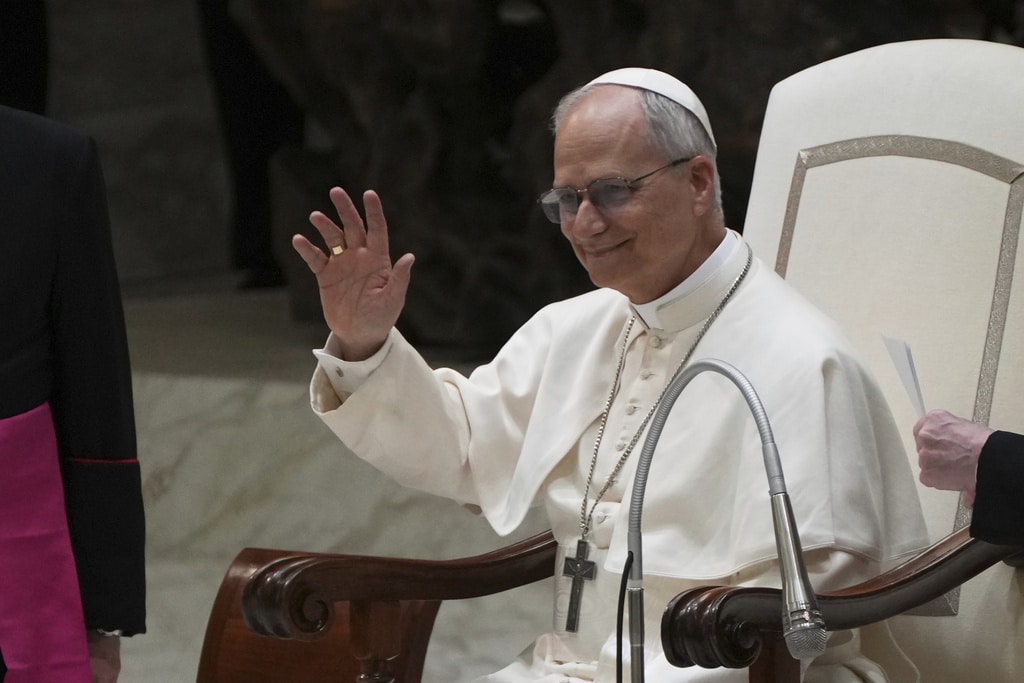On May 8, Cardinal Robert Prevost made history by becoming the first Roman Catholic pope to be born in the United States of America. As a result of his missionary work, he is also a citizen of Peru.
Prevost succeeded Pope Francis, the first pope from South America. Much like the rule followed by the Democrat Party from 1832 to 1936, his election required a two-thirds vote of the eligible delegates (in this case cardinals) and was not resolved until the fourth ballot. The selection is signaled by white smoke coming from a Vatican chimney. Prevost chose the name Leo in honor of a prior pope who emphasized justice and human rights.
Roman Catholicism within the U.S.
Roman Catholics had been welcomed to British America (they thrived in French Canada) when Lord Calvert in 1632 created the state of Maryland (which would in 1702 establish the Anglican Church). Over time, other colonies and future states accepted the idea of religious toleration, but prejudice against Catholics remained strong and was often fueled in the 19th century by anti-immigrant sentiment. The U.S. did not elect a Roman Catholic as president until 1960 (John F. Kennedy) and has only elected one other (Joe Biden) since then.
The First Amendment of the U.S. Constitution prohibits the adoption of laws respecting the establishment of religion or infringing the free exercise thereof. Even before it was adopted, the U.S. Constitution had, in Article VI, prohibited test oaths affirming particular religious beliefs as a condition of office.
This clause had provoked some controversy in the state conventions called to ratify the Constitution. Anti-federalist opponents, who like their fellow countrymen were largely Protestant, feared that this might one day allow a Roman Catholic or Muslim to be elected president. Some even feared that a pope might eventually win the office.
In answering this concern at the North Carolina Convention, James Iredell, who would later serve as a justice on the U.S. Supreme Court, observed that:
A native of America must have very singular good fortune, who, after residing fourteen years in his own country, should go to Europe, enter into Romish orders, obtain the promotion of cardinal, afterwards that of pope, and at length be so much in the confidence of his own country as to be elected President. It would be still more extraordinary if he should give up his popedom for our presidency (“‘So Help Me?’: Religious Expression and Artifacts in the Oath of Office and the Courtroom Oath” by Frederick B. Jonassen, Cardozo Public Law, Politics and Ethics Journal. 12 (2014): 303-373.)
This outlandish scenario is today a bit less implausible than in the past, although faithful Catholics, including Leo XIV, would likely consider the U.S. presidency to be a demotion only in part because it has a two-term limit.
Until this year, a U.S. Catholic pope has always been something of a fantasy. In 1979, Walter F. Murphy, a political science professor at Princeton University and scholar of the American judicial process and Vatican politics, wrote a bestselling novel entitled, “The Vicar of Christ.” It portrayed the fictional life of Declan Walsh who fought in the Korean War, became chief justice of the U.S. Supreme Court, and went on to become Pope Francis I.
The Catholic Church’s affect on geopolitics
One of the Catholic Church’s most brilliant and spirit-filled moves was that of breaking with a 400-year tradition of selecting Italians as pope to choose Karol Jozef Wojtyla of Poland who took the name of John Paul II in 1978 prior to the fall of the iron curtain behind which he had served, whose Soviet leaders had so abused human rights.
At a time when President Donald Trump and his Roman Catholic vice president, J.D. Vance, are more interested in building walls than bridges and show little regard for due process, the choice of Pope Leo XIV will put U.S. immigration policies — and other actions against educational institutions, law firms and the media that threaten the First Amendment — in similar relief.
It is reported that as Allied leaders gathered near the end of World War II to decide on the fate of Europe, Winston Churchill suggested that Poland would retain its ties to the West because it was so largely Roman Catholic. Joseph Stalin, who wanted Poland in the Soviet orbit, reputedly asked, “How many divisions does the pope have?
The fall of the Soviet Empire in 1989 suggested that the soft voice of political and religious freedom was ultimately stronger than the power of Soviet tanks.
U.S. citizens of all religious convictions are proud that a fellow countryman has been chosen for the post. I hope and pray that, like Father John Courtney Murray, Leo XIV will bring an American love to liberty to his post and that his accession will have a similar leavening power on U.S. politics.
Pope’s call for freedom of speech and press
It is encouraging that, in a meeting with journalists just days after assuming the papacy, the pope affirmed the “precious gift of free speech and of the press” and called for the release of journalists who had been imprisoned.
“The suffering of these imprisoned journalists challenges the consciences of nations and the international community, calling on all of us to safeguard the precious gift of free speech and of the press,” he said.
John R. Vile is a political science professor and dean of the Honors College at Middle Tennessee State University. He is one of the origianl editors of The First Amendment Encyclopedia.

